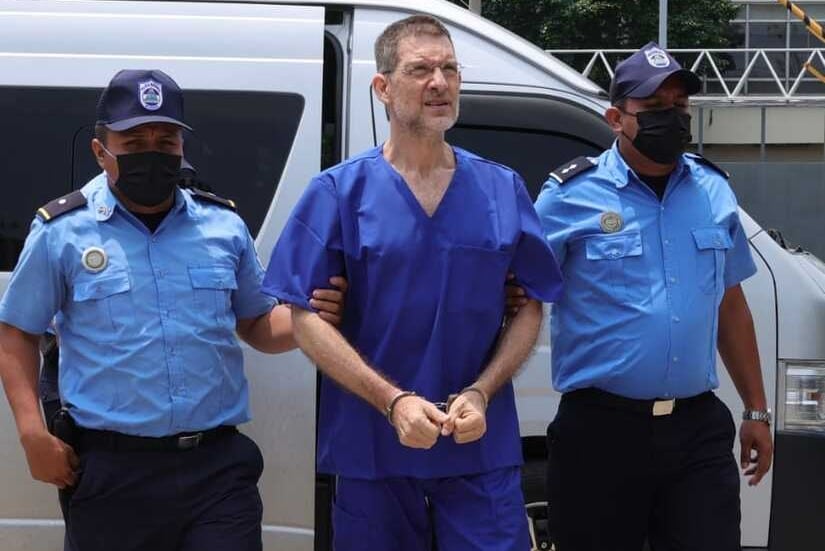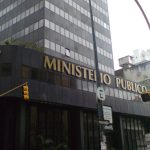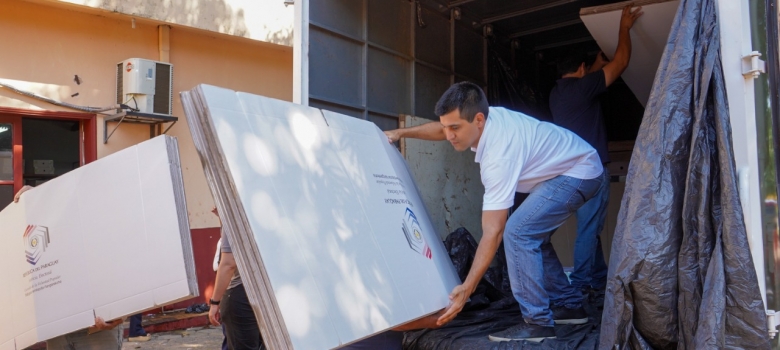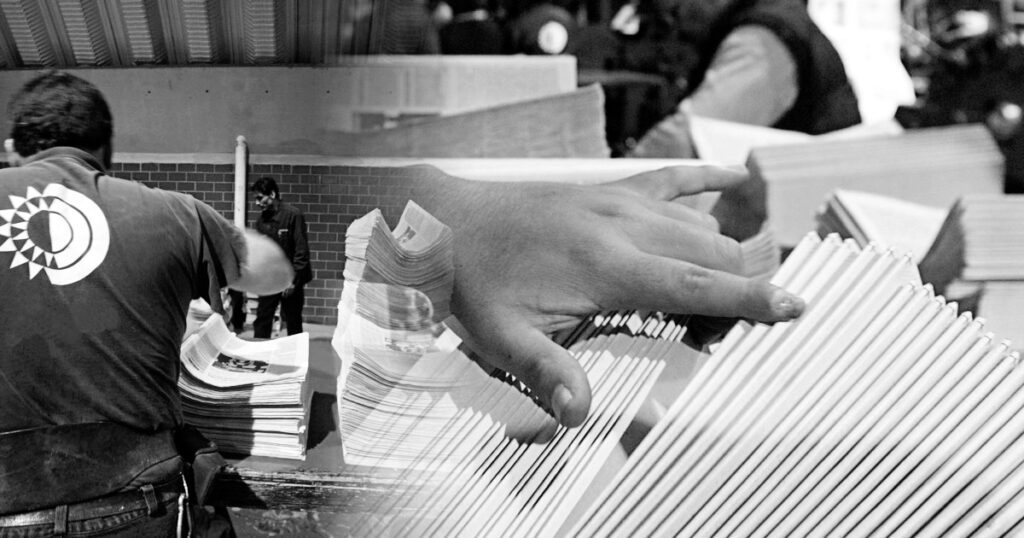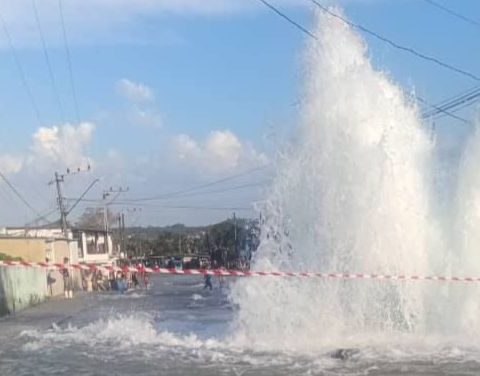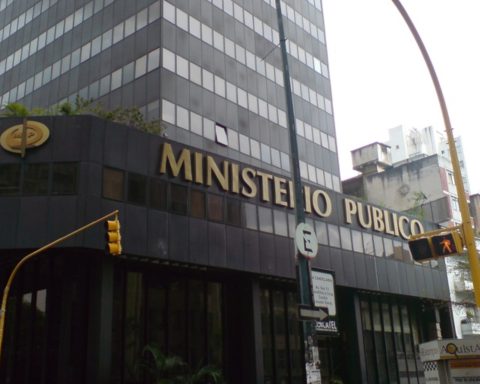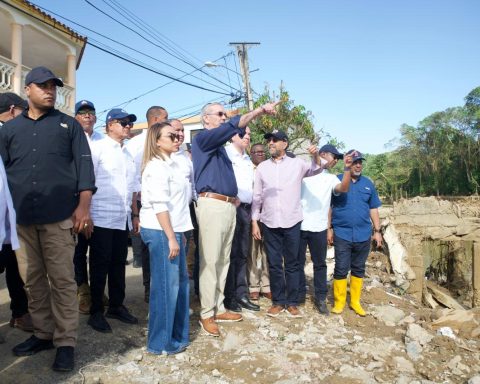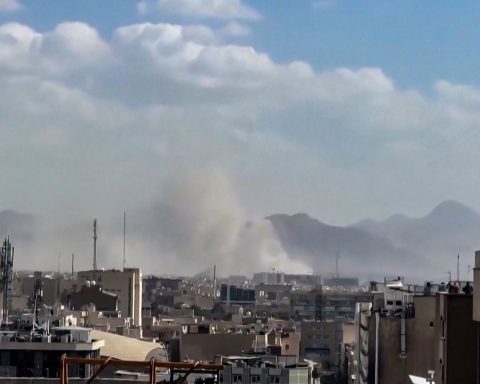The Inter-American Court of Human Rights (IACHR) granted “urgent” measures for the general manager of the newspaper La Prensa, John Lawrence Holmannand ten other political prisoners of the regime of Daniel Ortega and Rosario Murillo, in order to “protect and guarantee their right to life”, and required the State of Nicaragua for their “immediate” release.
The Court’s measures, published on January 10, also try to guarantee “the health, access to adequate food and personal integrity” of the prisoners of conscience: Norlan Cárdenas, Jaime Navarrete, Osman Aguilar, José Santos Sánchez, Ezequiel de Jesús González, Denis Palacios, Uriel José Pérez, Ernesto Antonio Ramírez, Edder Muñoz, Nidia Barbosa Castillo, Juan Lorenzo Holmann and their families in Nicaragua.
In the resolution, the inter-American court requires the State of Nicaragua to “proceed to the immediate release” of the prisoners of conscience and present a report on the measures adopted no later than January 18, 2023. “Afterwards, the State must present a periodic report each month regarding the measures adopted in accordance with this decision”, the document emphasizes.
On the measures granted to the nuclei relatives of these political prisonersthe Court ordered the State of Nicaragua to “refrain from prosecuting and exercising reprisals” against them and their representatives for the simple fact of presenting information before that court.
They warn irreparable damage to political prisoners
Among the considerations of the I/A Court HR to grant “urgent” measures to this group of 11 political prisoners, it is highlighted that “there are conditions of extreme gravity and urgency that they constitute irreparable damage” and that the State of Nicaragua “has not complied with its duty to guarantee the imprisoned persons minimum conditions compatible with their dignity.”
Likewise, the Inter-American Court indicates that these people are deprived of liberty for having personally participated in protests and demonstrations that began in April 2018, having supported protesters, having critical opinions that could lead them to be identified as opposition to the Government. , having disseminated information considered critical by the Government, and directing independent media outlets, which are also perceived as critical of the Government.
#AdoptionofUrgentMeasures
??⚖️??⚖️ Resolution of the President of the Inter-American Court in the Matter of 11 people deprived of liberty in 3 detention centers and their families, within the framework of the provisional measures adopted in the Matters (Continue ??) pic.twitter.com/yETxRVJk1v— Inter-American Court of Human Rights (@CorteIDH) January 11, 2023
According to information supplied to the Court by the Commission, the eleven beneficiaries are being held in “severe and degrading” conditions, such as: overcrowding, unsanitary conditions, limited access to light and ventilation, often without drinking water, they are not given access to sanitary batteries or places to eat, the food is scarce and insufficient, they are not provided with health care or that provided is precarious and insufficient, they are subjected to punishment and unjustified isolation, and they are subjected to constant threats, which are also extend to their families.
Nidia Barbosa was hospitalized three times in 2022
The Inter-American Court also explained that in this group of eleven political prisoners all are sick, some have even been transferred urgently to hospitals and health posts, but in general they are not informed about the results of the examinations that they have practiced
Such is the case of political prisoner Nidia Barbosa, who last year was admitted to the Intensive Care Unit for a few days and then sent to her cell. However, the Court warns, “she has been taken from her cell on three other occasions (from August 22 to 29, 2022, from September 28 to October 2, 2022, and from October 3 to 12, 2022) and admitted to the medical post of the penitentiary system due to her asymptomatic sinus bradycardia.”
The Inter-American Court also details that Barbosa underwent some medical examinations, but his relatives are unaware of the results of said examinations and when they find out about his health situation, they do so through third parties, not being directly informed by the officials. from the prison.
The contrary case is that of Juan Lorenzo Holmann, who “has not received medical attention for any of his ailments,” the Court underlines. He suffers from “systemic arterial hypertension, dyslipidemia, benign prostatic hypertrophy, thyroiditis, severe eye problems, and surgery to repair mitral regurgitation.” In addition, she has lost “more than 20 pounds” and suffered a stomach infection that led to reflux and gastritis, has a spot in her left eye that has not been examined, and a lump in her lower pelvis since January 2022 that have not been examined. been treated.
Regime in “permanent contempt”
At the end of November 2022, the Inter-American Court declared the State of Nicaragua in “permanent contempt” to the numerous orders to release the political prisoners and warned that he will raise the situation to the General Assembly of the Organization of American States (OAS).
“This Court has repeatedly ordered the State (of Nicaragua) to cease the attacks on the human rights of persons deprived of liberty,” the resolution warns. However, all the resolutions have been “unknown by the same, which has explicitly and forcefully announced its decision not to
fulfill them,” he continues.
From the point of view of International Human Rights Law, this means “an extremely serious act, which requires the other States that are members of the Inter-American System to enforce the collective guarantee, as indicated by the Court in an Order in which ordered that this Presidency request a hearing to present the situation before the Permanent Council of the Organization of American States”, reads the Court’s resolution.
